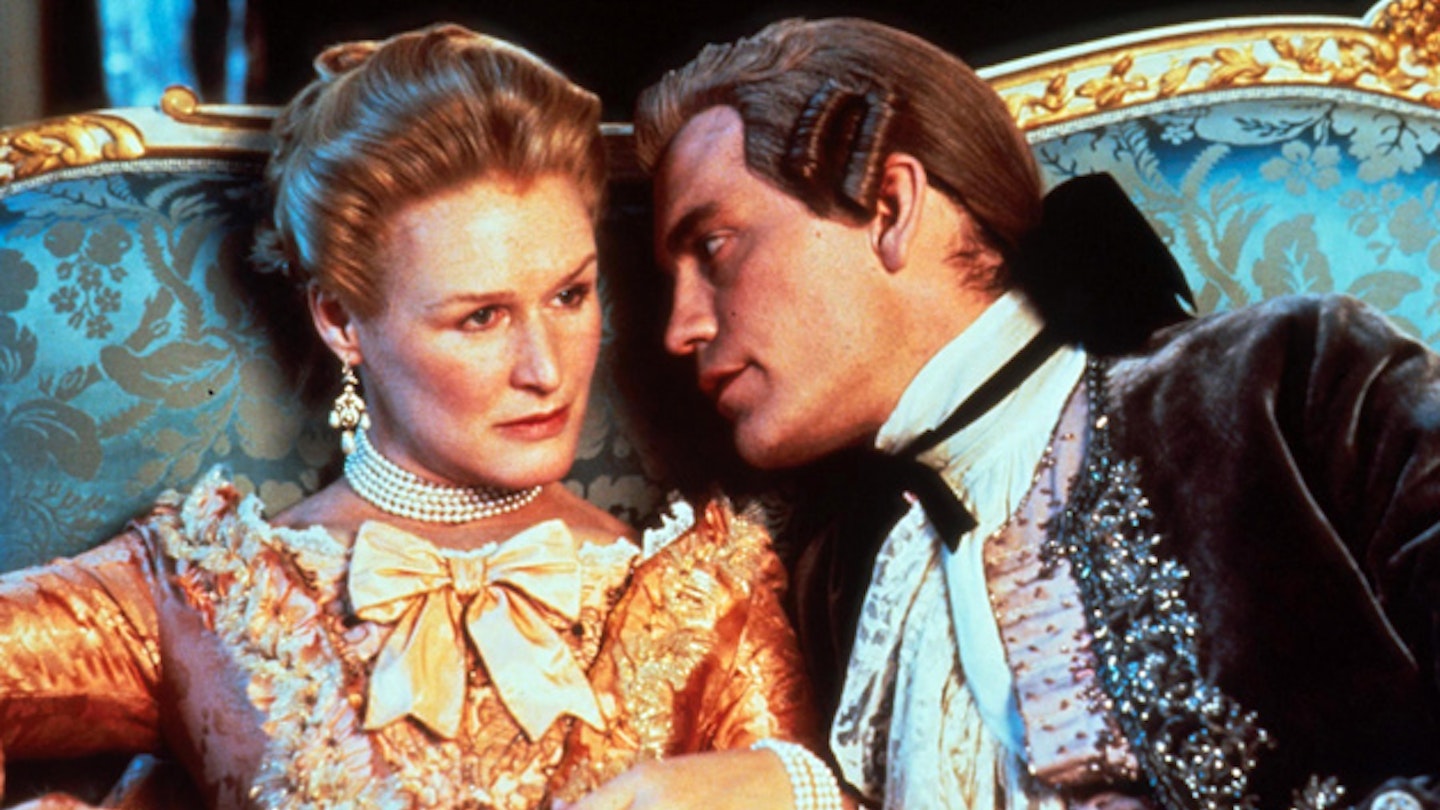This story has been creating a stir since it was published as a novel in Paris in 1782. Condemned as a work of revolting immorality, it was promptly banned by the very society it described, which of course didnt stop it being voraciously devoured for the next 200 years. The stage version, adapted by British playwright Christopher Hampton, won the 1986 Olivier Award. And then, of course, comes the film.
Malkovich and Close are at it immediately. When she asks him to seduce naive teenager Cecile de Volanges, to massively humiliate her prospective husband, he refuses as hes otherwise engaged attempting to bed the highly moralled Mme De Tourvel (Pfeiffer), just for the hell of it. As he tries it on he locks horns with her chum, Ceciles mother, and decides that deflowering the latters daughter is, after all, a good idea. Meanwhile, de Merteille has sorted out an alternative operative (a callow music teacher) who she ends up taking to bed herself. And so the permutations continue until the almost entirely unexpected ending.
The main characters devotion to this sexual and social point-scoring is absoluteafter the time and trouble they put into it, success becomes an end in itselfand the film could so easily have fallen apart due to this sheer ludicrousness. However, magnificently subtle playing of the lead roles by Close (twisted in the extreme), Malkovich (reptilian charm) and Pfeiffer (tormented beyond endurance) involves the viewer so completely that the entire business becomes not only possible but probable. They operate on the principle that everybody concerned is as barking mad as only the fabulously wealthy can be, therefore nothing needs justifying, and energy can be spent on the details that bring the film so vividly to life.
